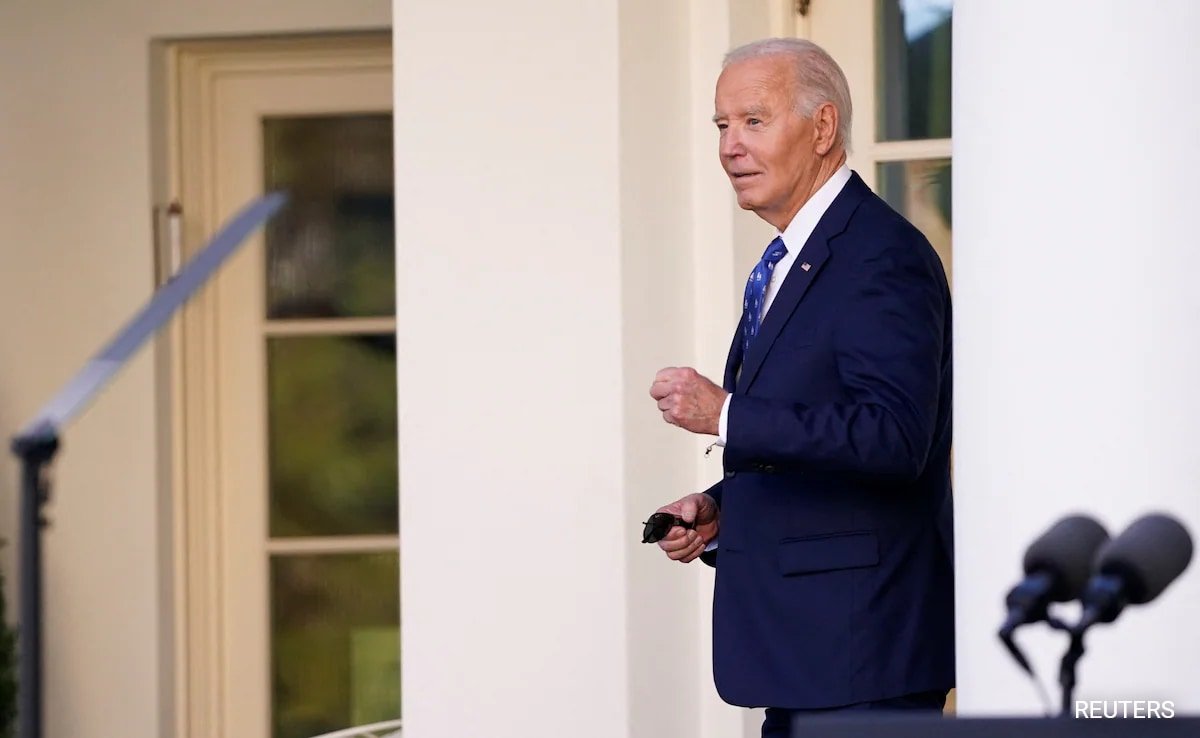
The Joe Biden administration is weighing new, harsher sanctions against Russia’s lucrative oil trade, seeking to tighten the squeeze on the Kremlin’s war machine just weeks before Donald Trump returns to the White House.
Details of the possible new measures were still being worked out, but President Joe Biden’s team was considering restrictions that might target some Russian oil exports, according to people familiar with the matter who asked not to be identified discussing private deliberations.
That step was something Biden had long resisted over fears it could trigger a spike in energy costs, especially in the run-up to last month’s presidential election. But with prices for oil slipping amid forecasts of a global surplus in 2025 and fears growing that Trump may seek to force Ukraine into a quick deal with Russia to end its nearly three-year-old war, the Biden administration is now open to more aggressive action, the people said.
The deliberations highlight how Biden’s team is more willing to take risks in confronting Russia as it prepares to depart, especially with previous efforts to choke the Kremlin’s energy revenues yielding mixed results and average US gasoline prices hitting their lowest level since mid-2021. In its waning weeks, the administration has also moved to surge military and financial support to Ukraine amid questions about Trump’s commitment to continued US support.
The US already bans imports of Russian oil but new restrictions on the exports of one of the world’s largest producers – which could involve singling out foreign buyers of its crude – would upend more than two years of policy set after Russia’s full-scale invasion of Ukraine began in February 2022.
The administration was also weighing fresh sanctions aimed at the tanker fleet that Russia uses to transport its oil, the people said. The new limits on the so-called shadow fleet could be be unveiled in the coming weeks, according to the people.
The European Union is planning similar measures on Russia’s shadow fleet before the end of the year. The bloc also is expected to target individuals involved in the trade.
Spokespeople for the National Security Council and the Treasury Department declined to comment on Tuesday.
It’s clear the departing Biden administration will try to leave a “difficult legacy” in US-Russia relations, Kremlin spokesman Dmitry Peskov told reporters Wednesday, in response to a question on the prospect of tougher oil sanctions, the Interfax news service reported.
Oil prices barely budged on the news, underscoring the fact that Trump – who takes office on Jan. 20 – may want to avoid inflation catalysts in the same way that Biden did.
Since Russia’s invasion of Ukraine began, Moscow has by and large managed to keep its oil flowing – albeit to customers in Asia rather than Europe where it mostly went before the attack.
For most of this year, prices for the nation’s crude have also held above a Group of Seven-imposed cap that only permitted western services for cargoes purchased at $60 a barrel or less. That is in part because Russia turned to shadow-fleet tankers, often operating with unknown insurers or owners.
The price cap has tried to simultaneously restrict the flow of oil revenues while maintaining supplies, two goals that are in conflict with one another.
One model for broader US sanctions could be to impose restrictions similar to those on Iranian oil. In that case, buyers of the oil face US punishment. Such a move would be fraught with risk, given that powerful countries including India and China are major consumers of Russian crude.
Most immediately, such limits could spike oil prices, causing global economic strain. Crude futures have held to a tight range since mid-October, with international benchmark Brent trading below $75 a barrel, compared with more than $120 in the months after Russia’s invasion.
It would also inflame tensions with adversaries and partners alike, whose help the US wants to limit exports of sensitive goods such as chips and other technology that fuel Russia’s war machine.
While the moves would seek to capitalize on a softer oil market, they would also be aimed at ratcheting up the pressure on Russia before Trump takes office. The president-elect has pushed for negotiations to end the war in Ukraine, and current officials say they want to give the government of President Volodymyr Zelenskiy as much leverage as possible heading into any talks.
With that in mind, squeezing President Vladimir Putin’s finances even further could strengthen Ukraine’s negotiating hand. There’s a chance Trump could unwind measures if he felt they had inflated oil prices, but that risks the potential political cost of looking weak or offering Russia concessions too soon.
Russia has confounded predictions of an economic collapse after the US and its allies imposed unprecedented sanctions over the invasion of Ukraine. After slumping initially, the economy rebounded strongly amid huge state spending on defense and measures to help shield domestic businesses from the sanctions. The economy may expand by 3.5% in 2024, according to a survey of 24 economists by Bloomberg News in November.
Still, Russia faces deepening challenges, with the ruble on the slide and the central bank hiking its key interest rate to a record 21% in October to try to curb inflation running at more than twice the 4% target. The bank has warned of the risks of stagflation as growth slows amid labor shortages while inflation remains high.
The latest move would follow restrictions the US rolled out last month on Gazprombank, the last major Russian financial institution that had been exempt from penalties. The Biden administration had previously decided not to levy sanctions against the bank, which European nations use to pay for the gas they still buy from Russia, for fear of causing turmoil in global commodity markets.
Already, Hungary, as well as other countries that rely on Russian gas imports, have warned the US decision poses a potential risk for energy security. Turkey has also sought a sanctions waiver.



